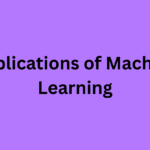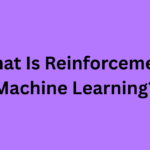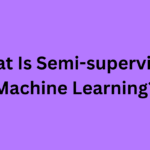C++ Programming Language Tutorial
Chapter 1: Introduction to C++
1.1 Evolution from C to C++
1.2 Features of C++ (OOP Concepts)
1.3 Structure of a C++ Program
1.4 Compiling and Running a C++ Program
1.5 Input/Output using cin, cout
Chapter 2: Basics of C++ Programming
2.1 Variables and Data Types
2.2 Type Casting and Type Modifiers
2.3 Operators: Arithmetic, Logical, Relational, Bitwise
2.4 Operator Precedence and Associativity
2.5 Comments and Best Practices
Chapter 3: Control Structures
3.1 Conditional Statements: if, if-else, switch
3.2 Loops: while, for, do-while
3.3 Jump Statements: break, continue, goto
3.4 Nested Control Statements
3.5 Example Programs (e.g., pattern generation)
Chapter 4: Functions in C++
4.1 Function Definition and Declaration
4.2 Call by Value vs Call by Reference
4.3 Default Arguments and Inline Functions
4.4 Function Overloading
4.5 Recursion
Chapter 5: Arrays and Strings
5.1 One-dimensional and Multidimensional Arrays
5.2 Array Operations and Manipulations
5.3 String Handling using string Class
5.4 C-style Strings vs C++ Strings
5.5 String Functions and Manipulations
Chapter 6: Pointers and Dynamic Memory
6.1 Pointers Basics and Pointer Arithmetic
6.2 Pointers and Arrays
6.3 Pointers to Functions
6.4 Dynamic Memory Allocation: new and delete
6.5 Smart Pointers (Introductory)
Chapter 7: Object-Oriented Programming (OOP) Concepts
7.1 Classes and Objects
7.2 Encapsulation and Data Hiding
7.3 Access Specifiers: public, private, protected
7.4 this Pointer and Scope Resolution Operator
7.5 Constructors and Destructors
Chapter 8: Inheritance and Polymorphism
8.1 Types of Inheritance: Single, Multiple, Multilevel, Hierarchical, Hybrid
8.2 Function Overriding
8.3 Virtual Functions and Runtime Polymorphism
8.4 Abstract Classes and Pure Virtual Functions
8.5 Virtual Destructors
Chapter 9: Operator Overloading and Templates
9.1 Operator Overloading Basics
9.2 Overloading Unary and Binary Operators
9.3 Friend Functions and Classes
9.4 Function Templates
9.5 Class Templates
Chapter 10: Exception Handling
10.1 Try, Catch, and Throw Keywords
10.2 Multiple Catch Blocks
10.3 Catching All Exceptions
10.4 Re-throwing Exceptions
10.5 Custom Exception Classes
Chapter 11: File Handling in C++
11.1 File Streams: ifstream, ofstream, fstream
11.2 Reading/Writing Text and Binary Files
11.3 File Modes and Operations
11.4 Error Handling during File I/O
11.5 File Pointer Manipulations
Chapter 12: Standard Template Library (STL)
12.1 Introduction to STL
12.2 Containers: Vectors, Lists, Queues, Stacks, Maps
12.3 Iterators and Algorithms
12.4 Function Objects (Functors)
12.5 STL Use Cases
Chapter 13: Mini Projects and Real-World Applications
13.1 Project 1: Student Database Management
13.2 Project 2: Bank Account System
13.3 Project 3: File Encryption-Decryption
13.4 Project 4: Inventory Management
13.5 Final Presentation and Code Review






